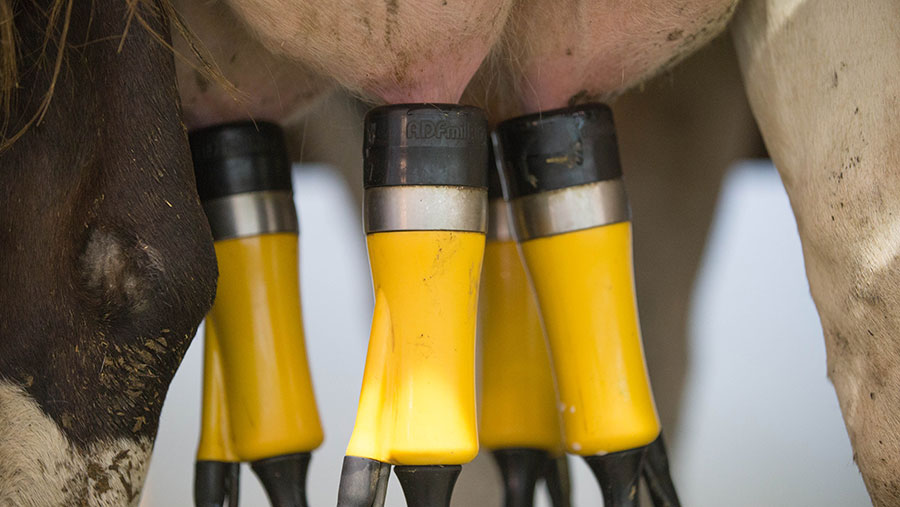First Milk pumps £12.5m into creamery upgrades
 © Tim Scrivener
© Tim Scrivener Farmer-owned co-op First Milk has announced a £12.5m investment programme to update its cheese and whey processing facilities.
The investment will be split across two processing sites. About £9m will go to the Lake District Creamery in Aspatria, Cumbria, and £3.5m to the Haverfordwest Creamery in Pembrokeshire.
The Cumbria site will get new high-capacity cheese blockformers to raise production and improve efficiency. The money will also fund new water, milk, cream and whey handling processes.
First Milk said the investment was the fourth stage of a multi-year programme to upgrade the Lake District plant.
Since 2019 a further £5m has been spent on major upgrades including a rapid chill store and improvements to milk processing equipment.
See also: Are Arla producers ready for new rules on calves?
Meanwhile the investment at Haverfordwest will see a new chilled-water plant installed, as well as an upgrade to the whey process. This follows an £8m spend, completed in 2020, which included a new cheese tower, separators, additional milk silos, and a combined heat and power plant.
The latest round of funding brings First Milk’s total investment to £30m over the past three years. The upgrades will increase processing capacity by 20%, which First Milk said would strengthen its position in the UK and in export markets.
Chief executive Shelagh Hancock said the programme would also reduce energy and water use to help meet environmental targets and sustainable dairy commitments.
By 2025 the company’s First4Milk environmental programme aims to cut energy use by 40%, water use by 30% and carbon dioxide emissions by 65% compared with a 2008 baseline.
First Milk finances
First Milk’s annual report and accounts for the year to 31 March 2020, released last summer, painted a positive picture. Turnover had increased by 4% to £282.8m, compared with £272.3m the previous year.
Operating profit rose by 4% from £7.2m to £7.5m, and pre-tax profit was up from £3.2m in 2019 to £5m.
The group’s net debt decreased by 20% to £33.1m (£41.1m in the previous year) and its net assets were up by 25% to £39.8m.
The co-op has about 700 members and handles more than 800m litres of milk, with no resignations for more than 18 months.
